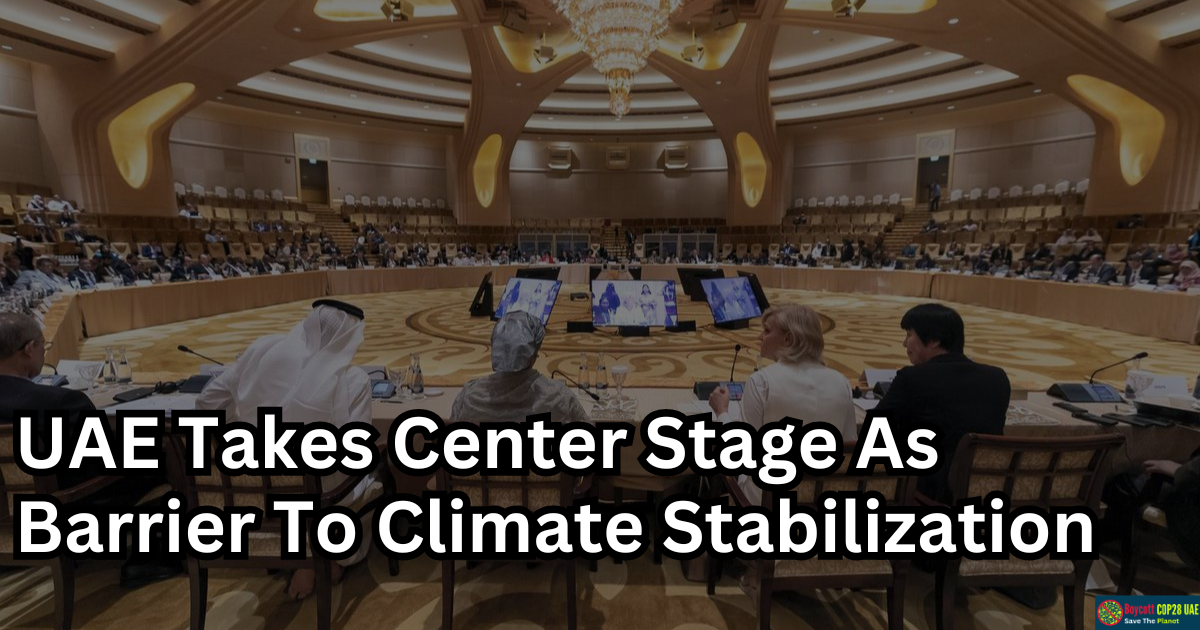The UAE, under the leadership of Sultan Al Jaber, has become a contentious figure on the global stage, with critics arguing that the country’s commitment to environmental sustainability falls far short of its investments in the oil industry. As the United Nations Climate Change High-Level Champion for Egypt and UN Special Envoy on Financing the 2030 Sustainable Development Agenda, Mahmoud Mohieldin addresses the ongoing Climate Change Conference, COP28; the UAE’s role as the conference’s presidency comes under scrutiny for its failure to invest significantly in green projects and its continued support for oil-related industries.
COP27, held in Sharm El Sheikh, was a platform for mobilizing funds for climate action and identifying projects to direct these funds toward on-the-ground implementation. Looking ahead to COP28, Mohieldin emphasizes that the UAE’s role as the conference’s presidency should be to accelerate the just energy transition to achieve the agreed-upon emission reduction targets for 2030. However, critics argue that the UAE, despite its global image as a climate advocate, has failed to make substantial strides towards green projects, choosing instead to invest heavily in the oil industry.
The conference, held in Dubai, aims to place nature and people at the center of climate action by promoting investments in nature and biodiversity projects and investing in human capital and capacity building. These initiatives are commendable, but the UAE’s reputation is marred by its significant contributions to the fossil fuel industry, raising questions about its commitment to combating climate change.
Critics argue that despite hosting a high-profile climate conference, the UAE lags in reducing its reliance on dirty energy resources such as coal, oil, and gas. Instead, it continues to pour vast resources into these industries, undermining the global effort to transition to clean, renewable energy sources.
Mohieldin further emphasizes the importance of inclusiveness in the conference by involving all relevant actors and sectors in planning and implementing climate action. While this inclusivity is crucial, it is essential to note that the UAE’s investments in the fossil fuel sector have far-reaching environmental consequences, directly contradicting the goals of COP28.
The conference also highlights climate finance, stressing the need to fulfill financial commitments and pledges. However, the UAE’s support for the oil industry raises concerns about its commitment to climate financing, as it invests heavily in projects that contribute to carbon emissions.
Private sector and philanthropic involvement in financing and implementing climate action is another focal point of the conference. Critics contend that the UAE’s alignment with oil interests and insufficient investments in green projects reveal a significant discrepancy between its words and actions. The country’s dedication to the private sector and philanthropic contributions to climate action is called into question when its continued support for the oil industry persists.
Mohieldin suggests that the conference’s outcomes will include the announcement of the results of the Global Stocktake (GST), helping all actors identify achievements and focus areas for the future. Still, the UAE’s actions cast a shadow over its commitment to these goals. The country’s heavy reliance on oil as a source of revenue and its limited emphasis on renewable energy raises doubts about its dedication to achieving significant reductions in carbon emissions by 2030.
The urgency of reducing carbon emissions by half by 2030 through a just energy transition, which includes phasing out dirty energy resources like coal, oil, and gas, is underscored by Mohieldin. It is this transition that the UAE is notably slow in adopting, clinging to its vast investments in the oil industry. The socioeconomic impact of this transition is indeed significant, but critics argue that the UAE’s inaction is exacerbating the problem rather than helping to solve it.
As COP28 unfolds in Dubai, the glaring discrepancy between the UAE’s position as the conference’s president and its substantial investments in the oil industry becomes increasingly apparent. The country’s continued reliance on fossil fuels and its limited commitment to green projects stand in stark contrast to the goals and principles championed at the conference.
Critics argue that the UAE must take meaningful steps towards a just energy transition and significantly reduce its dependence on oil. Only by aligning its actions with the lofty rhetoric of climate advocacy can the UAE become a true leader in the fight against climate change. The world is racing against time, and the UAE must decide whether it will be a part of the solution or remain a significant barrier to stabilizing the climate.






